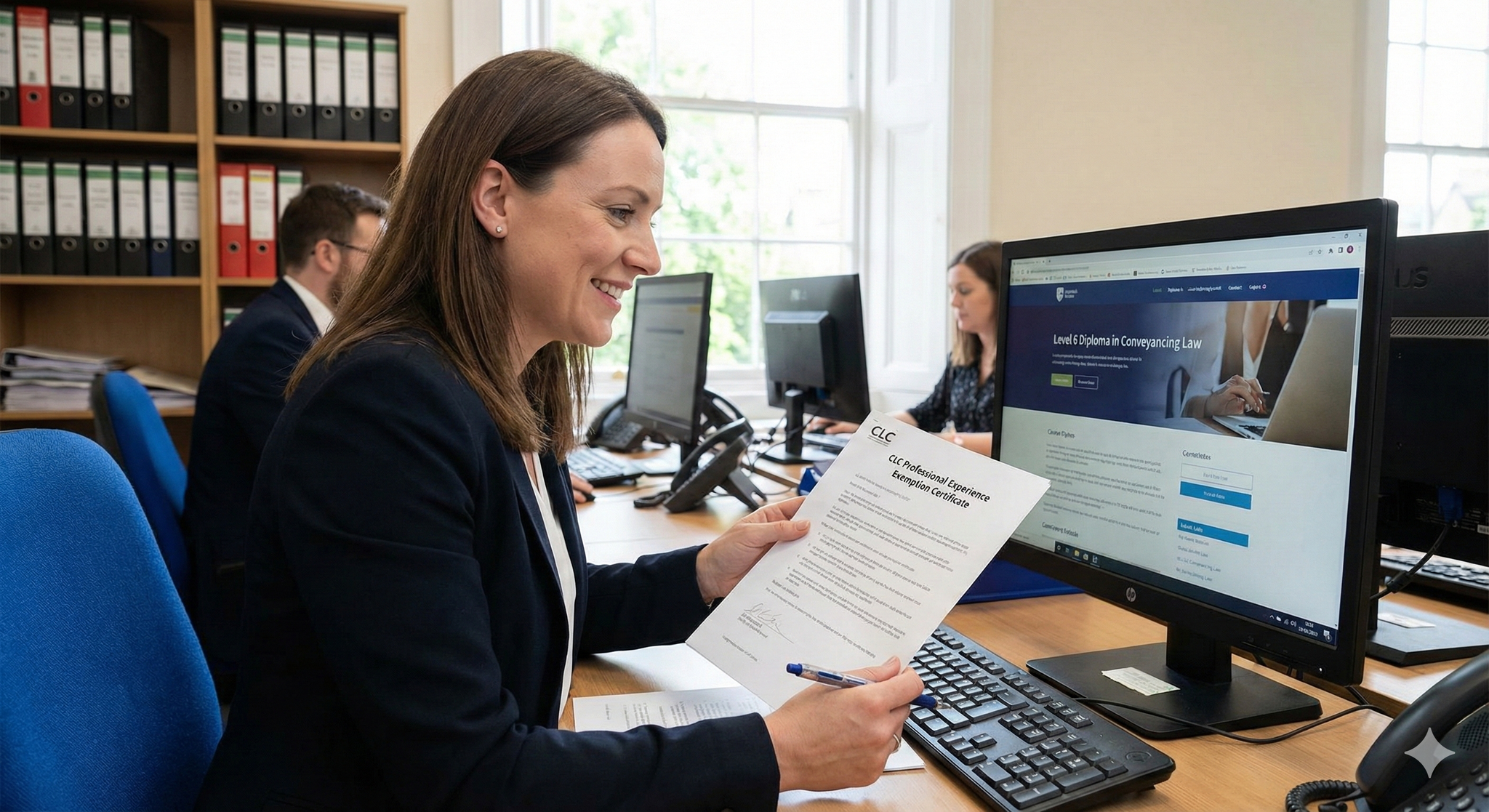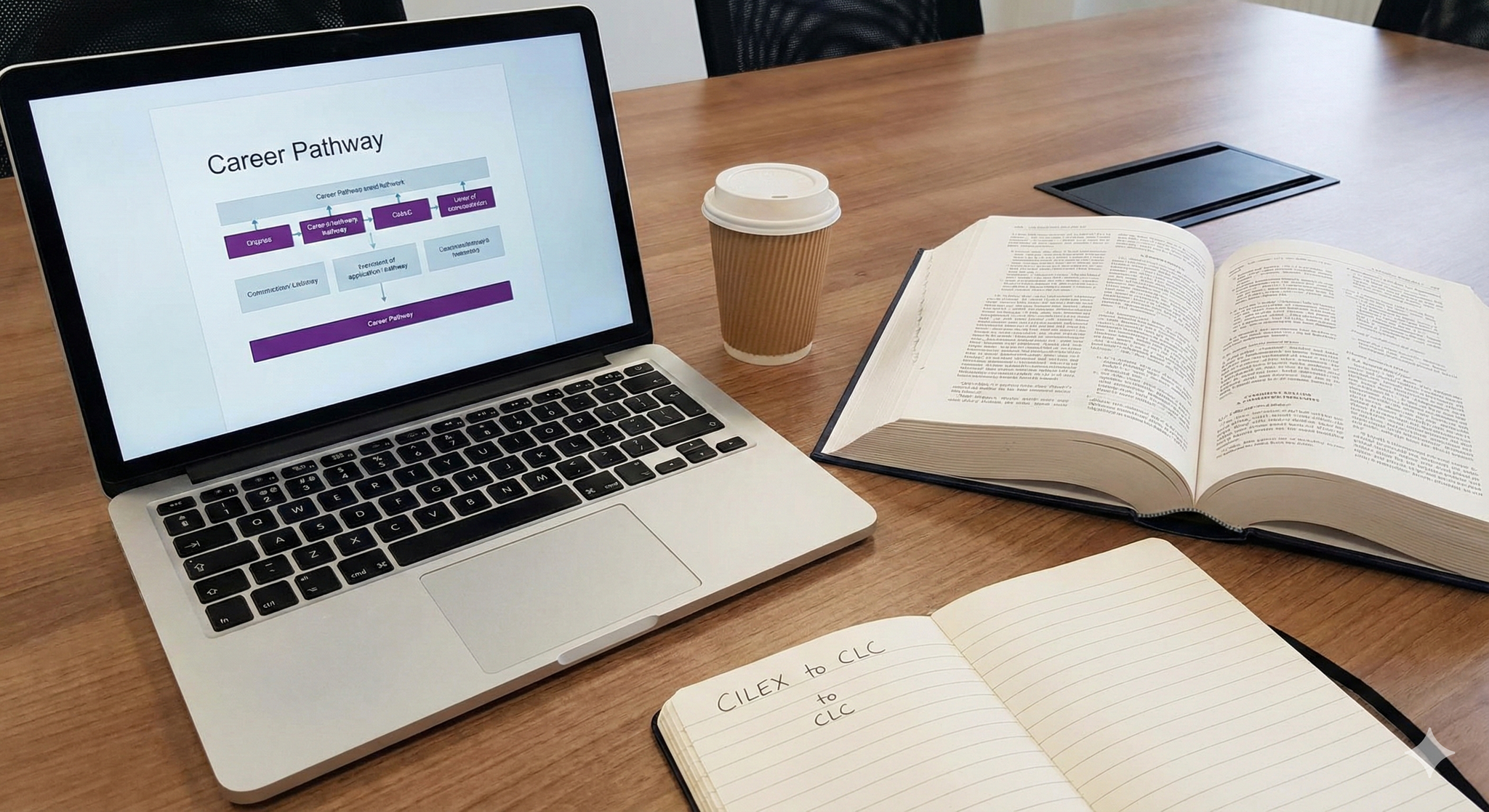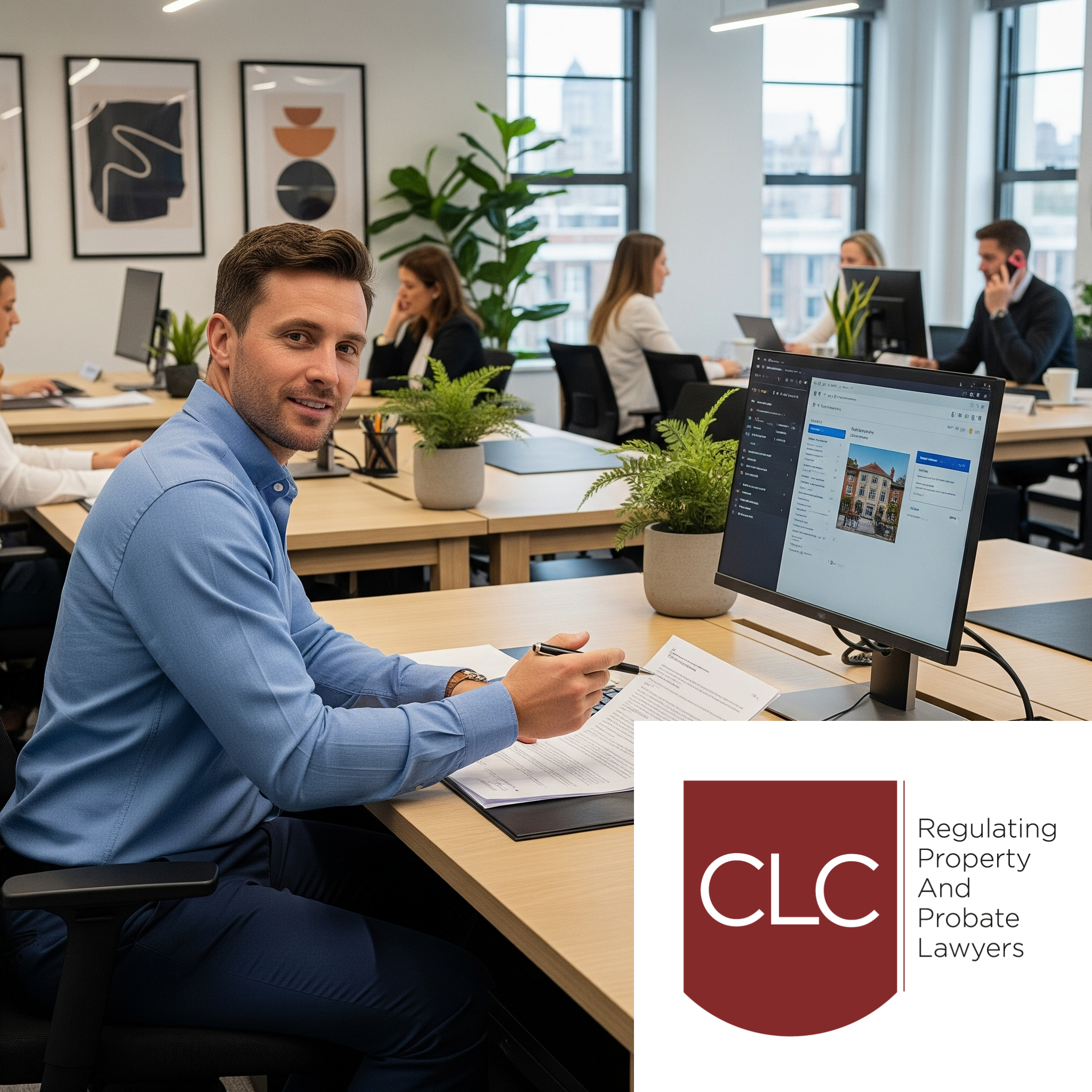What Can You Do With a Law Degree Without Being a Solicitor?
Licensed Conveyancers are qualified, professional property lawyers who specialise in the legal aspects surrounding buying and selling property in England and Wales.
Published: 01 July 2025
You've put in the hard work, navigated complex legal theories, and emerged with a coveted law degree. Congratulations! For many, this achievement immediately points towards a career as a solicitor or barrister. However, the reality of the legal job market, particularly the fierce competition for training contracts, often leaves many talented law graduates feeling adrift.
But here's a secret: your law degree is far from wasted if you choose not to pursue the traditional solicitor path. In fact, it provides an exceptional foundation for a highly specialised and rewarding career as a Licensed Conveyancer. The Council for Licensed Conveyancers (CLC) offers a direct and accelerated route that leverages your existing legal knowledge, allowing you to quickly become a qualified property law specialist.

The Training Contract Tightrope: Why Traditional Routes Are Challenging
Securing a training contract to become a solicitor is notoriously difficult. Firms receive thousands of applications for a limited number of places. While official aggregated statistics can be elusive due to varied application processes, estimates suggest success rates for training contracts at major firms can be as low as 1-3%. Even with a top-tier degree, the odds are stacked against you. Many bright, ambitious law graduates find themselves in a seemingly endless cycle of applications, rejections, and disheartening competition.
This is where the CLC Licensed Conveyancer route shines as a pragmatic and highly effective alternative.
The CLC Conveyancing Route: Your Accelerated Path to a Legal Career
A Licensed Conveyancer is a specialist property lawyer, expertly navigating the legal aspects of buying, selling, and remortgaging property. They are regulated by the Council for Licensed Conveyancers (CLC), an independent body ensuring high professional standards.
Here's why this route is particularly attractive for law graduates:
Exemption from Level 4: A Head Start
Thanks to your law degree, you're exempt from the CLC Level 4 Diploma in Conveyancing Law and Practice. This is a significant advantage, as it means you can jump straight into the Level 6 Diploma, saving you considerable time and cost. Your existing knowledge of the English legal system, contract law, and land law directly translates into a faster qualification.
Focus on Level 6: Specialised and Efficient Learning
The Level 6 Diploma focuses specifically on the advanced aspects of conveyancing law and practice. This means your studies are highly targeted, building directly on the foundational knowledge you gained during your degree, without requiring you to retread familiar ground or study areas of law you don't intend to practice.
Practical Experience While You Study: The 1200 Hours Advantage
To qualify as a Licensed Conveyancer, you need to accrue 1200 hours of practical experience in a conveyancing environment under the supervision of an authorised person. The excellent news is that this experience can be gained while you are studying for your Level 6 Diploma. This allows you to gain invaluable real-world skills, apply your theoretical knowledge immediately, and even start earning, all while progressing towards your qualification. This integrated approach stands in stark contrast to the often-delayed and competitive nature of securing a solicitor's training contract post-study.
More Training Opportunities: A Broader Landscape
Because conveyancing firms and practices are always in need of skilled professionals, the opportunities to gain the necessary practical experience for a Licensed Conveyancer are generally more accessible than competitive training contracts. This means a clearer and more predictable path from qualification to employment.
Level 6 Diploma
Conveyancing Law & Practice
Earning Potential and Required Skills: On Par with Solicitors in Property Law
Don't mistake specialisation for a reduction in professional standing or earning potential. Licensed Conveyancers are highly valued specialists. You will earn an equivalent salary to a solicitor carrying out property law work. Experienced Licensed Conveyancers can earn upwards of £55,000 to £65,000 per year, with the potential to become partners in firms or even establish their own practices, where earnings can exceed £75,000.
Furthermore, the strengths and skills required to excel as a Licensed Conveyancer are remarkably similar to those honed during your law degree: meticulous attention to detail, strong analytical capabilities, excellent research skills, clear communication, and the ability to manage complex information under pressure. Your law degree has already equipped you with these core competencies.
Regulatory Excellence: A Different but Equally Robust Framework
While solicitors are regulated by the Solicitors Regulation Authority (SRA), Licensed Conveyancers are regulated by the Council for Licensed Conveyancers (CLC). Both are independent and robust regulatory bodies committed to upholding high professional standards, protecting consumers, and ensuring the integrity of their respective professions. Choosing the CLC route means you will be part of a highly respected and regulated legal profession.
Future Flexibility: Converting to a Solicitor
Should your career aspirations evolve, the CLC qualification does not close doors to becoming a solicitor in the future. The Solicitors Regulation Authority (SRA) acknowledges the practical legal experience gained as a Licensed Conveyancer as Qualifying Work Experience (QWE) under the new Solicitors Qualifying Examination (SQE) route. This means your time as a Licensed Conveyancer can count towards the experience required to qualify as a solicitor, offering a flexible pathway if you decide to broaden your legal practice later in your career.
Why Consider the CLC Licensed Conveyancing Route?
Your law degree is an investment, and the CLC route ensures that this investment, and your valuable skill set, does not go to waste.
- Avoid the Training Contract Scramble: Bypass the highly competitive and often frustrating search for a training contract.
- Faster Qualification: Leverage your law degree to gain direct entry to Level 6, accelerating your path to becoming a qualified legal professional.
- Affordable and Accessible: This route is generally more affordable and quicker to complete than the solicitor qualification path, offering a more accessible entry into a legal career.
- Specialist Expertise: Become a go-to expert in a vital and consistently in-demand area of law.
- Immediate Application of Skills: Apply your legal knowledge and skills in a practical, real-world setting from early in your career.
- Strong Earning Potential: Achieve comparable earnings to solicitors specialising in property law.
- Future Options: Maintain the flexibility to cross-qualify as a solicitor later if desired.
In an evolving legal landscape, the CLC Licensed Conveyancer route offers law graduates a compelling, direct, and rewarding career path that truly utilises the power of their law degree. Don't let the traditional perception of a law career limit your potential. Explore specialisation, embrace the opportunities, and build a successful future in property law.
Level 4 Diploma
Conveyancing Law & Practice
Level 6 Diploma
Conveyancing Law & Practice
More related posts

What does a Licensed Conveyancer do?

What does a Licensed Conveyancer do?

What does a Licensed Conveyancer do?
Enrol Today and Start your Career in Conveyancing
Learn MoreDate
https://copyblogger.com/get-clients-on-linkedin/










